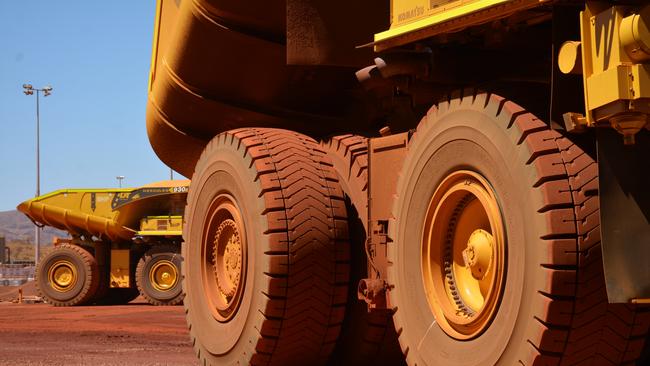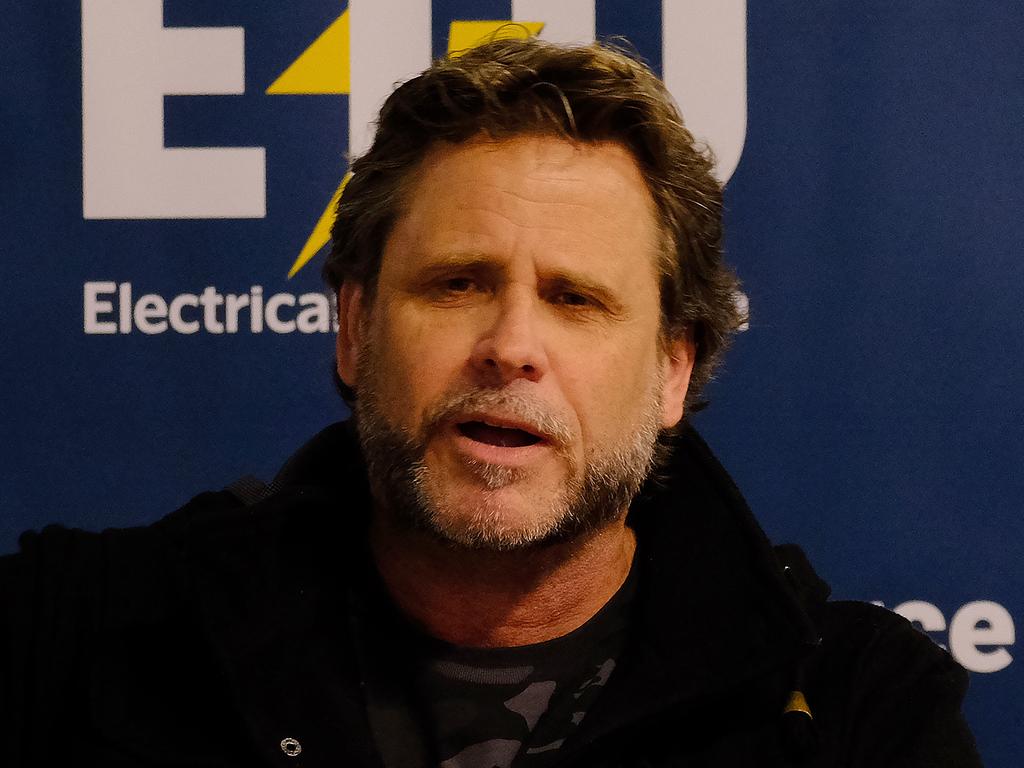Labor ‘digging us into a hole’: $131bn resources project pipeline ‘at risk’
Environmental lawfare, unproductive workplace policies and red tape are threatening resources projects, employers warn, as unions demand yearly $10,000 retention bonuses for BHP’s Pilbara workforce.

Environmental lawfare, unproductive workplace policies and red tape are threatening a predicted $131bn wave of resources and energy projects, employers have warned, as mining unions demand yearly $10,000 retention bonuses for BHP’s Pilbara workforce on top of annual 5 per cent pay rises.
As the Coalition flagged unwinding Labor’s same job, same pay laws that target BHP and Qantas, new analysis by the Australian Resources and Energy Employer Association predicts 107 major resources and energy projects worth $131bn are expected to enter production by the end of 2029, generating 26,810 new production-related jobs.
In the latest salvo by the mining lobby against Labor after weeks of political tension, AREEA chief executive Steve Knott warned that the strength of Australia’s major project investment pipeline was threatened by the Albanese government’s workplace and environmental agenda. Mr Knott said the first back-to-back commonwealth surpluses in 16 years were not delivered by a magic turnaround in the nation’s economic management, but through $70bn in royalties and taxes paid by the resources and energy sector.
“Without the contribution of Australia’s mining and energy projects, vital services such as Medicare, the NDIS, hospitals, schools and aged care would be deprived of critical investment,” he said.
“Yet Australia is on the threshold of a bizarre new era, where regulatory red tape, activism and unproductive workplace relations policies threaten the next wave of revenue and job-creating resources and energy projects.“

He said several multi-billion-dollar LNG projects, offering much-needed domestic gas supply and further export earnings were being “frustrated by continuous environmental and cultural heritage lawfare”.
“Despite the Albanese government suggesting the sector wouldn’t be impacted, miners are being dragged into multi-employer bargaining and face the risk of industry-wide strikes,” he said.
“Thousands of workers will soon be paid according to bargained terms and conditions of other businesses, and unions have been given a legislated leg-up to force themselves into workplaces and entire industries that have long since left them behind.”
Capitalising on federal Labor’s workplace laws to force BHP to start negotiating the first union collective agreement in the Pilbara for almost a decade, unions are pushing for hundreds of workers at the company’s large Area C and South Flank iron ore mines to get guaranteed annual 5 per cent wage rises, higher wages for long-serving tradesmen and improved rosters.
Their log of claims includes “guaranteed” annual pay increases of 5 per cent, superannuation paid at 13.5 per cent, 2 per cent above the legislated rate, and annual retention bonuses of $10,000 paid every February.
Unions will also seek pay equity clauses where a tradesperson or operator with the same experience, skills and similar qualifications are paid the same base rate as a minimum.
Australian Workers Union West Australian secretary Brad Gandy said Pilbara employees worked in an inherently dangerous industry on shifts “between 12 and 14 hours, that go on for weeks on end”. “They work most of the year in extreme heat, in dust bowls a long way from their family and friends,” he said. “They are pivotal to delivering BHP its multi-billion-dollar profits year in, year out. Wanting decent rosters and fair pay and conditions is not too much to ask.
“Today’s iron ore prices are $US92 a tonne, and BHP says it gets its iron ore to port for under $US30 a tonne. Given BHP produces and exports over 330 million tonnes of iron ore a year, it’s hard to believe BHP management when they cry poor and threaten to pack up and leave the Pilbara.”
Mr Knott said Labor’s industrial relations changes allowed a union to make a log of claims on an employer, even if they only covered a minority of the workforce, and then wait out nine months and apply to the Fair Work Commission for a determination.
“For decades, post centralised wage fixing in the 70s and 80s, many employers have been setting their wages and conditions commensurate with what they need to do to attract, retain and motivate employees,” he said. “Having unions, often representing a minority of the workforce, having their log of claims determined by FWC and applying to the entire workforce, is reverting to a system that failed Australian employers & employees 40 years ago.”
The government and the ACTU on Sunday attacked the Coalition after opposition finance spokeswoman Jane Hume said the same job, same pay laws would be reviewed if Peter Dutton won the next election.
Senator Hume said Labor’s multi-employer bargaining provisions, definition of casual employment and right-to-disconnect laws would be reviewed.
Asked if the same job, same pay laws would be scrapped, she told the ABC’s Insiders that “there will be elements of that, that we will certainly have to consider”.
Asked if a worker employed by a labour hire firm should get the same pay as a directly employed worker doing the same job, she said: “I’m not going to get into the details of industrial relations, that’s not my portfolio.
“But what I will say is that if we don’t have a more flexible industrial relations system, we are going to see productivity continue to go backwards.”
ACTU secretary Sally McManus said the Coalition was “revealing what we know is in their core DNA: a desire to always keep wages rises permanently low”. “They will try to take back these hard won same job same pay wage rises from workers out in mining and on Qantas flights and that’s just for starters,” she said.
“It is not as though Qantas or mining billionaires like Gina Rinehart, whose net worth is over $30bn, can’t afford to simply pay people the same wages for performing the same work.”
Workplace Relations Minister Murray Watt said Senator Hume had confirmed the Coalition was “planning to take a sledgehammer to wages”, but would not make the detail public until after the election.
“When Australians are facing cost of living pressures, the worst thing you could do is cut their wages,” Senator Watt said.
“But every day, it becomes clearer that pay cuts are on Peter Dutton’s agenda, if he wins the next election.”





